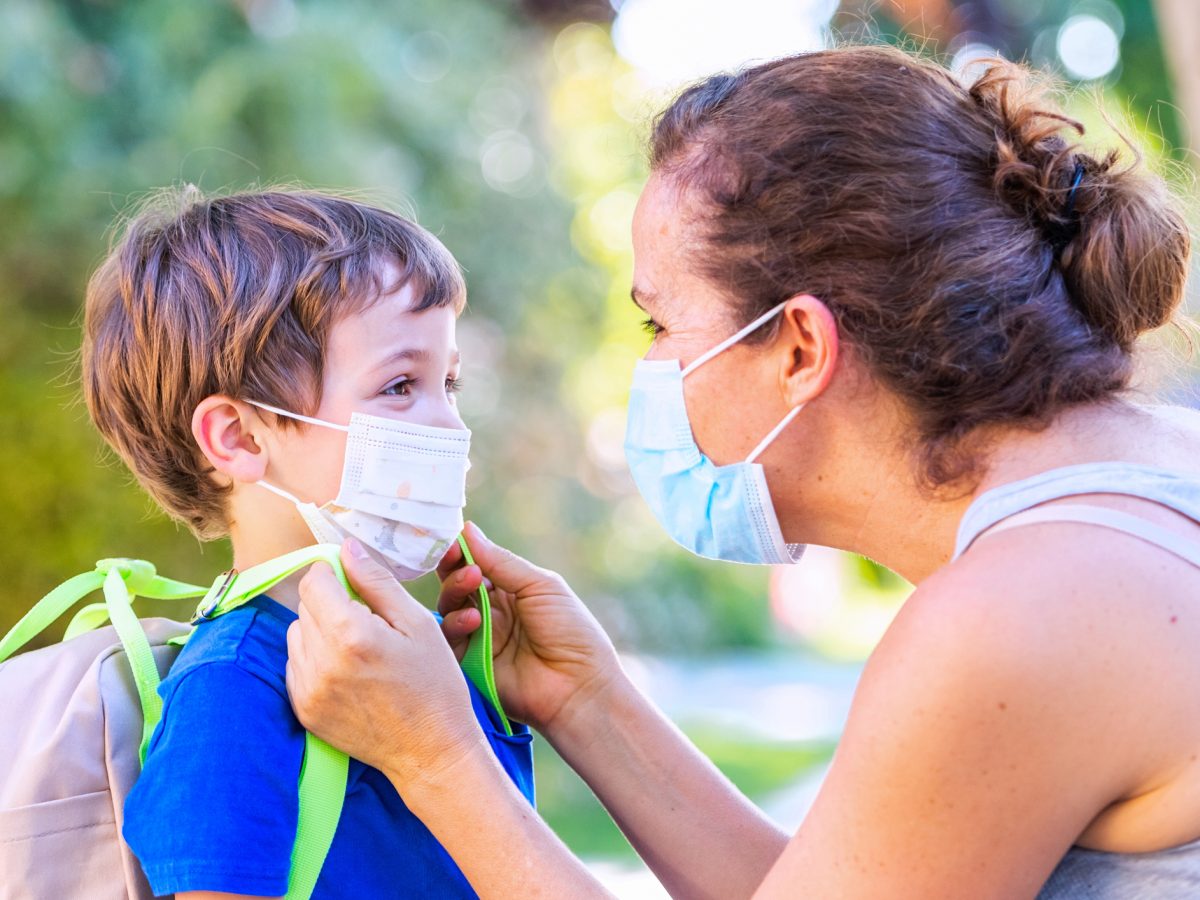This is a community petition asking the Fort Payne City School system to make masking OPTIONAL for all students, teachers, staff, and visitors in our city school buildings. Wearing a mask or NOT wearing a mask is a medical decision and should be made by each individual family based on their specific situation.
All of the students AND school employees, from teachers to bus drivers to administrators and maintenance staff, are precious to us. These are our neighbors, family members, and friends, and our community is not oblivious to the impact this virus can have. We recognize that people have experienced the negative physical impact of the virus, but we cannot ignore the negative physical, emotional and developmental impact of masking in our schools.
There have been many debates about the effectiveness of masks and for every study that shows masks work, there is another study that shows that masks do not work. The fact of the matter is this: Schools have not been proven to be where this virus is spreading. According to California Public Heath’s Evidence Summary: TK-6 Schools and COVID-19 Transmission, “When children do get COVID-19, the predominant pattern of transmission is to get the infection from an adult household contact (someone the child lives with at home who has COVID-19). High rates of household infection from adults to children have been seen in studies from Chicago, India, Greece, Australia, Switzerland, South Korea, and China. This has been seen even in settings where schools were open. For instance, a study of 10 early childhood centers and 15 schools (>6,000 people) found low rates in the schools overall (1.2%) and >90% of cases were from the community, not from the in-school transmission.”
In the 2020-21 school year, our students were required to mask. Parents and children reported that students experienced multiple physical effects of masks including headaches, difficulty breathing, difficulty focusing, and skin problems among other things. According to AIER’s Masking Children: Tragic, Unscientific, and Damaging, “A German-wide registry (not the optimal highest-quality study) used by 20,353 parents who reported on data from almost 26,000 children, found that the “average wearing time of the mask was 270 minutes per day. Impairments caused by wearing the mask were reported by 68% of the parents. These included irritability (60%), headache (53%), difficulty concentrating (50%), less happiness (49%), reluctance to go to school/kindergarten (44%), malaise (42%) impaired learning (38%) and drowsiness or fatigue (37%).” A June 2021 study published in the JAMA Pediatrics Network states “Most of the complaints reported by children3 can be understood as consequences of elevated carbon dioxide levels in inhaled air. This is because of the dead-space volume of the masks, which collects exhaled carbon dioxide quickly after a short time. This carbon dioxide mixes with fresh air and elevates the carbon dioxide content of inhaled air under the mask, and this was more pronounced in this study for younger children.
This leads in turn to impairments attributable to hypercapnia. A recent review concluded that there was ample evidence for adverse effects of wearing such masks. We suggest that decision-makers weigh the hard evidence produced by these experimental measurements accordingly, which suggest that children should not be forced to wear face masks.”
Masks have been found to collect and hold bacteria and other pathogens that can cause very serious infections besides COVID-19. Scientists at the University of Florida tested 6 masks that were worn by elementary students in Gainesville, FL and found all sorts of contaminants on the masks. “Half of the masks were contaminated with one or more strains of pneumonia-causing bacteria. One-third were contaminated with one or more strains of meningitis-causing bacteria,” reported the Alachua (County) Chronicle, a local news site. “One-third were contaminated with dangerous, antibiotic-resistant bacterial pathogens. In addition, less dangerous pathogens were identified, including pathogens that can cause fever, ulcers, acne, yeast infections, strep throat, periodontal disease, Rocky Mountain Spotted Fever, and more.”
In addition to the physical impacts of masking, there is evidence to show that wearing masks in schools is also detrimental to the emotional state and development of the wearer. According to USC Schaeffer’s Center for Health Policy & Economics, “Masking is a psychological stressor for children and disrupts learning. Covering the lower half of the face of both teacher and pupil reduces the ability to communicate. In particular, children lose the experience of mimicking expressions, an essential tool of nonverbal communication. Positive emotions such as laughing and smiling become less recognizable, and negative emotions get amplified. Bonding between teachers and students takes a hit. Overall, it is likely that masking exacerbates the chances that a child will experience anxiety and depression, which are already at pandemic levels themselves.”
According to the BMJ’s study Face coverings for covid-19: from medical intervention to social practice,
“…face masking can provoke an increase in stress hormones with a negative impact on immune resilience in the long term [17]. Face Masks prevent the mirroring of facial expressions, a process that facilitates empathetic connections and trust between pupils and teachers. This potentially leads to a significant increase in socio-psychological stress. During childhood and puberty, the brain undergoes sexual and mental maturation through hormonal epigenetic reprogramming [18-21]. Several studies show that long-term exposure to socio-psychological stress leaves neuro-epigenetic scars that are difficult to cure in young people and often escalate into mental behavioral problems and a weakened immune system [22-26]. A recent study by the CDC concludes that in young adults (18-24 years), the level of anxiety and depression has increased by 63% (!) since the corona crisis. A quarter of them thinks about suicide. As a result, the use of antidepressants has increased by 25% [27]. Several researchers have shown a relationship between the increase in stress experiences and the risk of upper respiratory tract infections and mortality [28-31].”
In summary, there is little evidence to show that schools are major transmission centers for COVID-19. There is conflicting evidence to show that masks are effective in reducing transmission. There is definitely evidence to show that masking, especially for an entire school day, can negatively impact the physical and emotional health and development of the wearer. Ultimately, adults should be given the opportunity to review the data and decide for themselves and their families whether or not the benefits of masking in schools outweigh the risks.
Please sign our petition to support not just parents who are concerned for their kids, but also teachers and school employees who cannot speak up for fear of losing their jobs. Free their faces and LET THEM BREATHE!
Loriah Goggans
Goggans reached out to Southern Torch with the following quote:
“The school system, parents, and students should be a team working towards creating incredible adults. Myself and other parents were disappointed that we were not able to share our input with the School Board and the Superintendent on Friday before such an important decision was made” stated Goggans. “The petition is a simple way to let our voices be heard. This is not a personal attack on anyone in our city or our school system” Goggans concluded.





